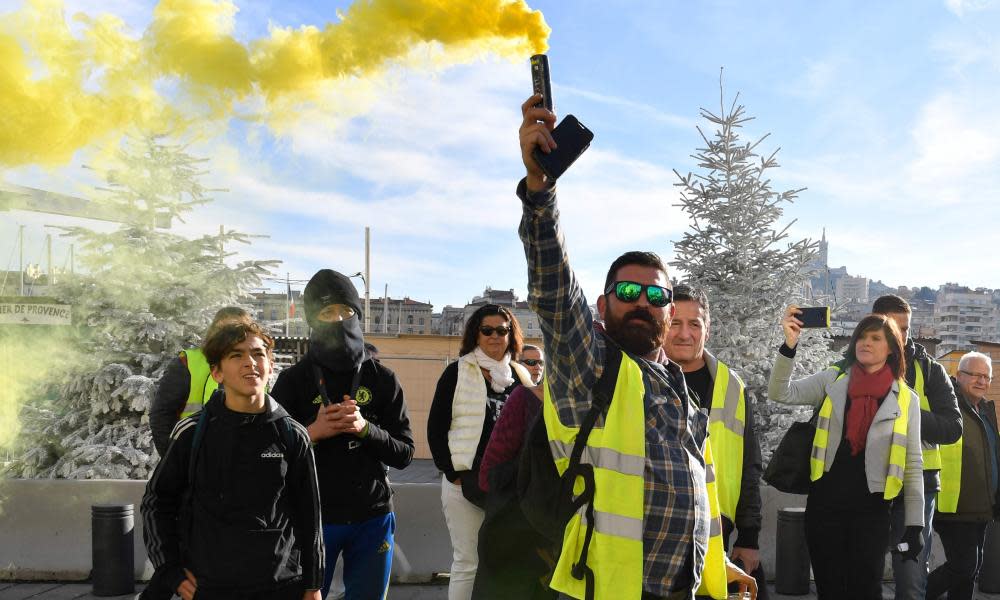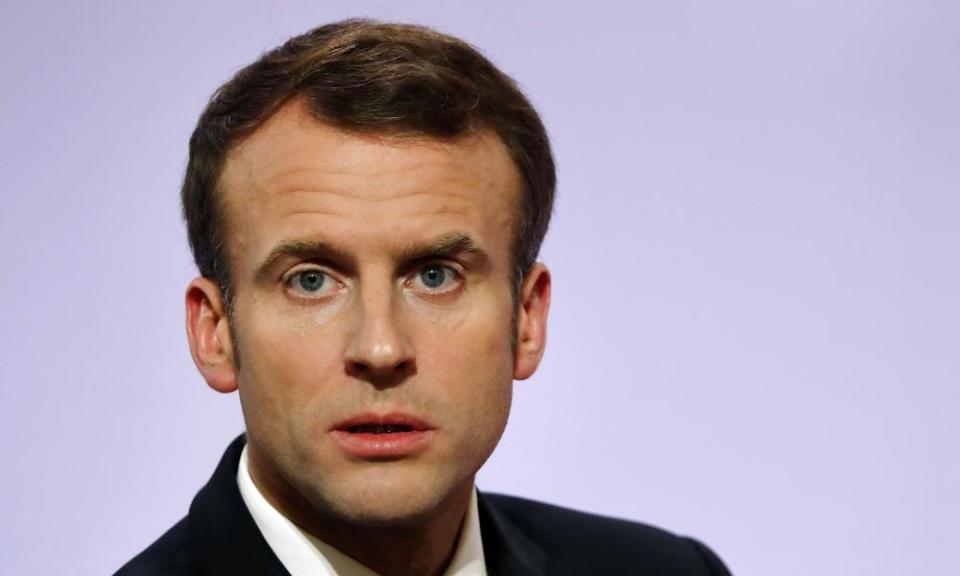A fear of cultural loss is fuelling anger with elites across Europe

“Can we borrow him?” Gary Lineker asked in April of the “charismatic, smart and ballsy” Emmanuel Macron. The BBC presenter was far from alone in being besotted by the French president.
“His basic message to the French people,” observed the Liberal Democrats’ Vince Cable, is “exactly the formula that I and my party can offer.” In Le Monde, Tony Blair showered praise on Macron’s “remarkable ideological clarity”.
Six months on, Macron cuts a different figure. The gilets jaunes (yellow vests) protests engulfing France speak to a deep well of resentment at home. What began as a complaint about fuel tax rises has mutated into a challenge to presidential authority. Despite the violence, the protesters retain public support while Macron’s popularity has sunk to a new low.
There are many issues specific to France in the gilets jaunes protests. But the crisis confronting Macron speaks also to wider issues of disaffection and turmoil in Europe, from austerity to Brexit.
When Macron came to power he was lauded as the scourge of populism. This view rested not just on his defeat of far-right Marine Le Pen in the presidential elections, but also on the belief that the problem western nations face is that of the rational centre being assailed by atavistic forces of populist extremism.

The French, Cable suggested, were “tired and disillusioned by the traditional right and the traditional left” and desired “something else which is moderate, middle of the road”. What has disillusioned people is not just the traditional left and right, but a political system deaf to their needs and interests. Macron, with his patrician attitude and Thatcherite reform policies, has only helped exacerbate this crisis of representation.
There are two elements to populism: disaffection with mainstream parties and institutions and the particular form that such disaffection takes. Much hostility to populism is hostility to the disaffection itself. Many dismiss the disaffected as uneducated or bigoted, their demands as backward or unreasonable.
Yet it’s not populist disaffection that is unreasonable, but the policies and institutions that have created that disaffection. Policies that have driven up inequality and driven down living standards. Institutions that have excluded people from the process of decision-making. There has been much talk of “out of touch” politicians. Little expresses that out-of-touchness more than the fact that for almost a decade politicians have spent more energy worrying about populism than about the policies that have nurtured disaffection. Macron has been derided for behaving like a king; contempt for ordinary folk is visible, however, in much of the debate about populism.
It is striking that the most potent protests in France in recent times have bypassed political parties and trade unions
A key question often raised is whether disaffection is driven primarily by economic or by cultural factors. “It’s the economy, stupid” has increasingly been replaced by “It’s culture wot matters”. Disaffection, many argue, is the result of a sense of cultural loss, primarily as a result of immigration.
The French protests show, though, that the relationship between the economic and the cultural is more complicated. The immediate cause of the protests was economic – fuel tax rises. It was one expression of the anger at the erosion of working-class living standards endured across Europe. What worries people, though, is not just stagnating wages or cuts to public services, but their loss of power in influencing policies that shape their lives. Material hardship is viewed through the prism of political voicelessness.
The decline of working-class power and labour movement organisations has helped obscure the economic and political roots of social problems. Culture, rather than class, has become the medium through which social issues are now refracted. Working-class troubles have come to be seen less as products of class-based politics than of cultural loss. The cultural Other, whether migrants or Muslims, is increasingly viewed as a threat to the working class. This has allowed the far right to shape disaffection, and to gain electoral credibility.
So far, the gilets jaunes protests seem more anarchic than fascist. It is striking, though, that the most potent protests in France in recent times have bypassed both political parties and trade unions.
The question we need to ask is not, “How should we create a centrist bulwark against populism?”, but “How can we give progressive shape to people’s disaffection?” Otherwise the left will either remain standing on the sidelines, allowing the radical right to take centre stage, or be driven, as has already happened, to promote illiberal notions of immigration, culture and belonging. Whatever the fate of the gilets jaunes, this wider issue – who will give shape to disaffection? – has still to be addressed.
• Kenan Malik is an Observer columnist

 Yahoo News
Yahoo News 
